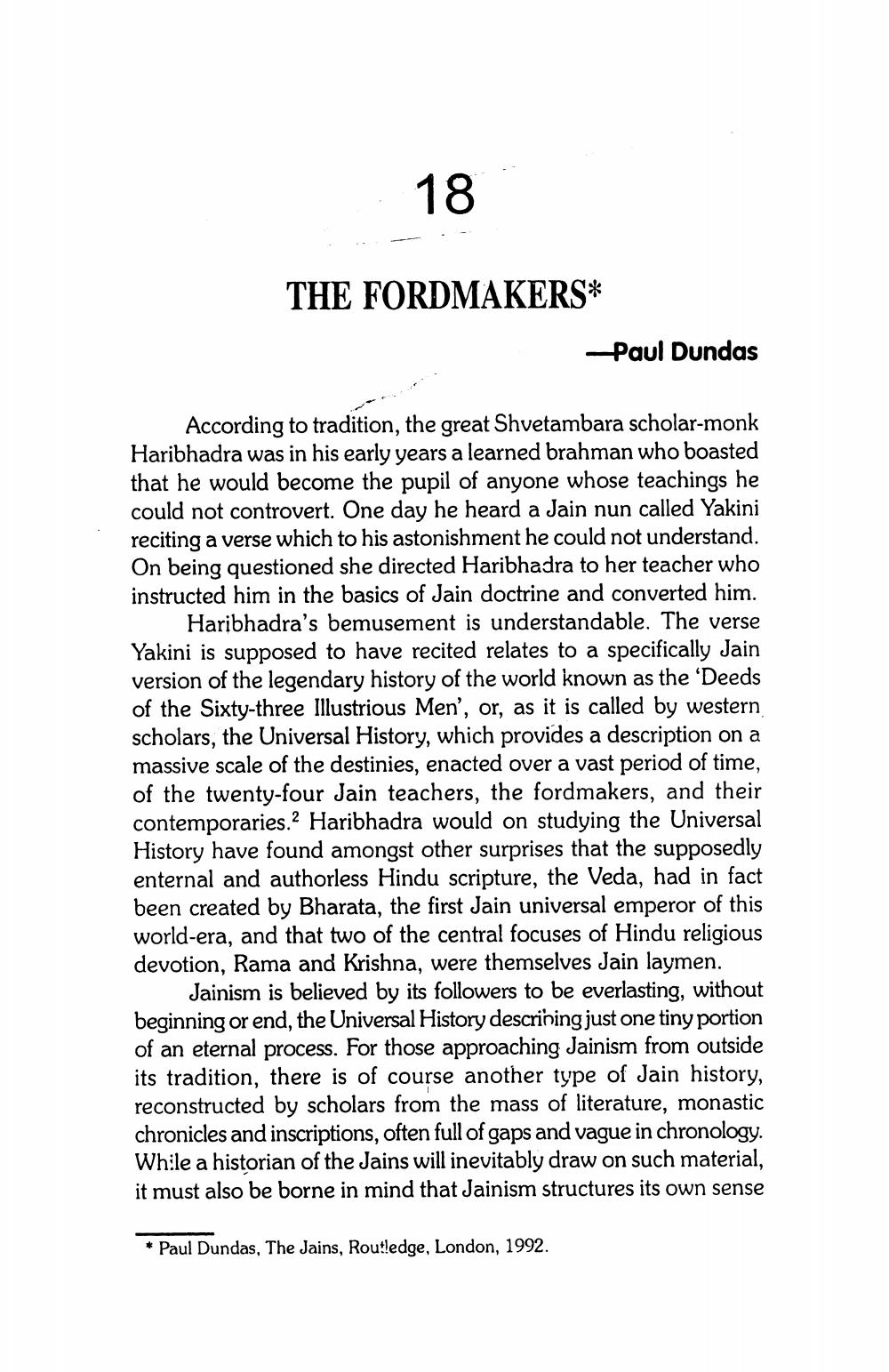________________
18
THE FORDMAKERS*
-Paul Dundas
According to tradition, the great Shvetambara scholar-monk Haribhadra was in his early years a learned brahman who boasted that he would become the pupil of anyone whose teachings he could not controvert. One day he heard a Jain nun called Yakini reciting a verse which to his astonishment he could not understand. On being questioned she directed Haribhadra to her teacher who instructed him in the basics of Jain doctrine and converted him.
Haribhadra's bemusement is understandable. The verse Yakini is supposed to have recited relates to a specifically Jain version of the legendary history of the world known as the 'Deeds of the Sixty-three Illustrious Men', or, as it is called by western scholars, the Universal History, which provides a description on a massive scale of the destinies, enacted over a vast period of time, of the twenty-four Jain teachers, the fordmakers, and their contemporaries.? Haribhadra would on studying the Universal History have found amongst other surprises that the supposedly enternal and authorless Hindu scripture, the Veda, had in fact been created by Bharata, the first Jain universal emperor of this world-era, and that two of the central focuses of Hindu religious devotion, Rama and Krishna, were themselves Jain laymen.
Jainism is believed by its followers to be everlasting, without beginning or end, the Universal History descrining just one tiny portion of an eternal process. For those approaching Jainism from outside its tradition, there is of course another type of Jain history, reconstructed by scholars from the mass of literature, monastic chronicles and inscriptions, often full of gaps and vague in chronology. While a historian of the Jains will inevitably draw on such material, it must also be borne in mind that Jainism structures its own sense
* Paul Dundas, The Jains, Routledge, London, 1992.




